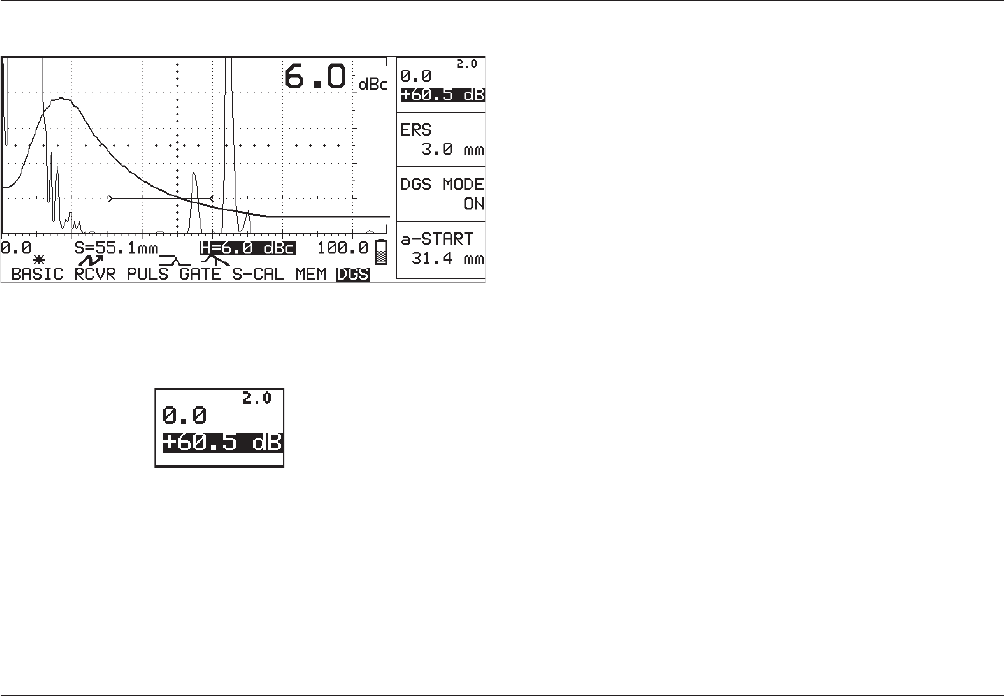
Krautkramer USN 52R/USN 52L Option DGS Issue 02, 03/99 DGS-25
The display shows a DGS curve: If you vary the reference gain, the curve moves verti-
cally up or down, depending on the direction in which
you are varying the gain. This is used for dynamic ex-
tension beyond the visible section of the curve.
If you vary the incremental gain, the echo amplitudes
change without the curve being affected in any way.
This is used for adjusting the detection sensitivity or for
measuring linear extensions (half-value length).
H Note:
The selection of an echo for the digital measured-value
display is made with the gate, and not with the curve.
The parameter H in the measurement line shows the
amplitude difference between the highest echo and the
curve at the same depth. The data can be given either
in dBc or in %, depending on the adjustment you have
made in the amplitude parameters (you make these
adjustments by setting the AMPLITUDE function to
dB-THRESHOLD in the 2nd operation level). You should
use the dBc setting.
Switching off the DGS mode
Operating the DGS
The GAIN function shows the incremental and refer-
ence gain, e.g:
incremental gain
reference gain
– Press B to alternate between reference gain and
incremental gain. The gain currently selected is
highlighted in the display.
– Vary the corresponding value with N or O.
Krautkramer USN 52R/USN 52L Option DGS Issue 02, 03/99 DGS-25
The display shows a DGS curve: If you vary the reference gain, the curve moves verti-
cally up or down, depending on the direction in which
you are varying the gain. This is used for dynamic ex-
tension beyond the visible section of the curve.
If you vary the incremental gain, the echo amplitudes
change without the curve being affected in any way.
This is used for adjusting the detection sensitivity or for
measuring linear extensions (half-value length).
H Note:
The selection of an echo for the digital measured-value
display is made with the gate, and not with the curve.
The parameter H in the measurement line shows the
amplitude difference between the highest echo and the
curve at the same depth. The data can be given either
in dBc or in %, depending on the adjustment you have
made in the amplitude parameters (you make these
adjustments by setting the AMPLITUDE function to
dB-THRESHOLD in the 2nd operation level). You should
use the dBc setting.
Switching off the DGS mode
Operating the DGS
The GAIN function shows the incremental and refer-
ence gain, e.g:
incremental gain
reference gain
– Press B to alternate between reference gain and
incremental gain. The gain currently selected is
highlighted in the display.
– Vary the corresponding value with N or O.


















